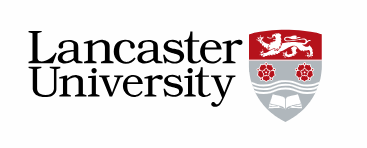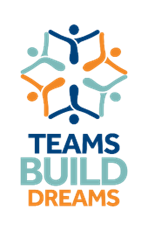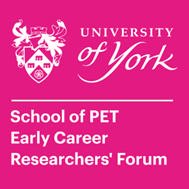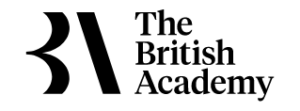Pre-Releasing Interview Questions University of Leeds
A new approach to interviews, can we improve the experience?
View
A new approach to interviews, can we improve the experience?
View
Reaching out to youth in disadvantaged neighbourhoods with les cordees de la reussite and other EDI initiatives
View
A position paper outlining proposed changes from the Dutch public knowledge institutoins and research funders (VSNU, FNU, KNAW, NWO, and ZonMw) relating to research culture, with a focus on career paths, quality, stimulating open science, balancing the individual and the collective and encouraging academic leadership
View
NWO-I outline several aspects of a modern recognition and reward system that are important for the NWO institutes, identifying areas where change is necessary and possible actions to deliver this change. The document will form the basis for consultations with staff to define concrete policy recommendations, recognising that change takes time, communications, and ultimately committment.
View
The Early Career Researcher Network is an inclusive, researcher-led membership body accessible to all UK-based early career researchers (ECRs) working in the humanities and social sciences – regardless of their funding source or background.
View
The Additional Needs Fund is specific funding set aside to support additional needs that applicants and award holders may require, including costs for caring responsibilities, assistance for sensory impairment and specific equipment to overcome barriers to people with disabilities undertaking research.
View
Mind the GAP (Good Academic Practices), a mandatory course in research integrity that is part of the doctoral training programme at all Flemish (BE) universities is being developed by VLIR, the Flemish Interuniversity Council.
View
The remit of the National Research Integrity Forum in Ireland is ensuring continuity of online research integrity training provision for staff and students in the research performing organisations, and encouraging the development and roll-out of in-person research integrity training programmes
View
The Research Culture awards recognise that improving our research culture is a complex, challenging process, built on collaboration and experimentation. By focussing on the shared challenges, solutions, and innovative approaches, we want to inspire sustained commitments resulting in genuine, lasting organisational change.
View
In the Netherlands, universities, funders and independent public research institutes work together in a national programme facilitated by the Ministry of Education, Culture and Science to develop Dutch research culture. RRview is an online platform where universities, among others, share new ideas, policies and issues related to Recognition & Rewards.
View
The University of Sheffield’s new vision of research excellence emphasises that our research cultures, environment and processes are as important as our research outputs and outcomes. Our new Academic Career Pathways framework has leadership as one of its four elements, with academic citizenship a core requirement at all grades and for promotion.
View
This toolkit is a set of practical resources, designed to help researchers to engage with and understand equality, diversity and inclusion (EDI).
View
‘Research Culture Islands’ is a creative workshop designed by the Research Culture Team in collaboration with the Institute for Medical Humanities Creative Facilitation Unit to explore through metaphor how we create a healthy research culture ecosystem. The aim of the workshop is to encourage participants to explore the research culture landscape and express some of the challenges and opportunities in a creative and safe environment.
View
Launched in 2022, The Flourish@Durham Research Culture Internship Programme has recruited four student interns to develop and deliver on the strategic priorities our research culture activities. The interns have worked across the diverse portfolio of the research culture strategy delivering both team and individual activities. The interns have been essential to development of Flourish and have modelled the ambition and values that we wish to promote across our community.
View
The Archives Research Centre (ARC), housed in Lancaster University’s Library, is a new space (supported by Research England’s Enhancing Research Culture Fund) designed to be a single contact point for researchers wanting to access the library and archive collections assembled by Lancaster University since 1963. The new space, freely available for teaching groups and community organisations, will enable the Library to use the collections to their full potential and expand their activities and widen participation in line with the Library’s vision to be an accessible space for all with both remote and on-site access.
View
We define team research as ‘a collaborative effort to address a challenge as a common goal, using the strengths and expertise of a diverse team, where contributions of all team members are encouraged, acknowledged, recognised and valued’. The Team Research Programme aims to increase awareness of the Team Research (Team Science) interdisciplinary model and its value to research and culture by providing a suite of training and development activities to its community.
View
As a member of the UK Reproducibility Network and underpinned by our Statement on Open Research, the University of Sheffield is committed to developing a culture which actively supports robust, reliable and reproducible research. Our flagship initiatives include the annual Open Research Prize and research lecture, University-wide networks including the Open Research Working Group and Sheffield Metascience Network, as well as dedicated training and support for researchers. This enables us to increase our work's reach and impact by opening up research outputs and methodologies to a wider audience, which is increasingly aligned with the priorities of funders, academic publishers and the expectations of the public.
View
Wellcome ran a research culture funding call in 2023. It was the first ever Wellcome-funding scheme to use partial randomisation to allocate the funding. The call threw up several interesting social and philanthropic research questions we want to explore in future community facing activities following the call.
View
Reproducible manuscripts combine analysis code and text to create a final document. They are transparent, open, future-proof, and reduce opportunities for research misconduct. This pilot project made ten manuscripts reproducible, and developed standardised procedures and templates to facilitate reproducibility.
View
‘Open science’ practices increase reproducibility, transparency and consequently trust in research. This is particularly important for studies which use machine learning. We developed a website and hosted a series of workshops in order to advance Open Science principles, particularly focusing on health research using observational data.
View
Realising our potential, a Russell group report, examines the current UK academic research culture and environment, including system drivers and incentives. This is accompanied by a toolkit which contains practical ideas and suggestions for universities, funders and publishers, to strengthen research culture and environment.
View
The Forum brings together postdocs and postgraduate researchers at York to challenge and enhance research culture, including equitable career opportunities. We deliver tailored workshops and consultations on competitive fellowships, showcasing translational technologies, clinical partnerships, adopting Open Research practices, and well-received interactive Outreach events at York’s Festival of Ideas. We continue to actively drive multiple aspects of interdisciplinary researcher career development and representation.
View
Trailblazers is a new open access initiative. Each year selected early career researchers will have the opportunity to ‘experience’ a transparent publication process, concluding with the publication of an open access edition of their work. The support they receive on proposal writing, manuscript peer review, editorial guidance from senior commissioning editors, as well as professional copy-editing, typesetting, and marketing, will give them the knowledge and skills they need to support the publication of their work throughout their careers.
View
Over 250 Early Career Researchers have signed up in the first couple of weeks to be part of the new British Academy North West North Wales cluster. Led by Lancaster University, Manchester University and Manchester Metropolitan University and funded by the Wolfson Foundation and the Department for Science, Innovation and Technology (DSIT), the ECRN is the Academy’s flagship support scheme for researchers at this career level. An inclusive network, designed by and for ECRs, it offers mentoring programmes, grant writing retreats, publishing conferences, lunch and learn sessions, and development and seed funding programmes.
View